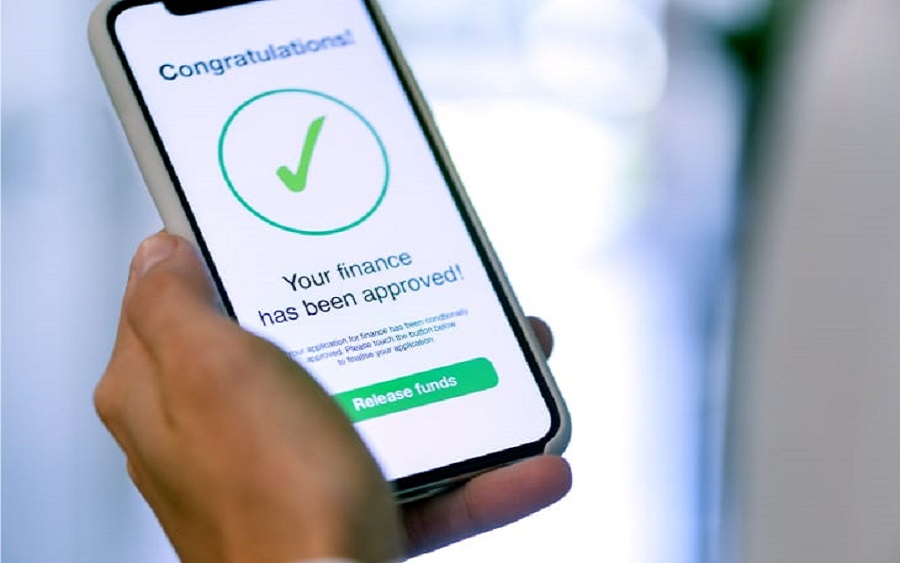The battle against loan sharks in Nigeria by the Federal Competition and Consumer Protection Commission (FCCPC) may be far from over as the lending apps continue their activities of blackmailing and invading the privacy of their customers.
While many Nigerians have also formed the habit of taking loans from these platforms without an intention to pay back, the loan sharks are aggressively pushing for recovery by every means possible, including sending messages to all contacts of the borrowers, describing them as “thieves who should be arrested at sight.”
However, this unwholesome practice is peculiar to unlicensed lenders. Legitimate ones licensed by the Central Bank of Nigeria (CBN) use the official route by reporting defaulters to the Credit Bureau, which in turn blacklists the Bank Verification Number (BVN) of such persons, thus blocking them from securing loans from any other financial institution in the country.
Last Thursday, the FCPC asked Google to remove Maxi Credit, Here4U, ChaCha, and SoftPay loan apps from the Play Store because they were engaging in unethical practices and breach of consumer privacy. As of the time of filing this report, all the apps, except SoftPay, have been removed from the app store. But there are hundreds of others that have continued their business unhindered.
Back story
- Late last year, the Federal Government through the FCCPC had moved to check some of the illegal, unwholesome and unfair practices in the money lending industry.
- The committee that received over 500 electronic mails and information in respect of the investigation was expected to through their activities lead efforts to address multiple potentially dubious conducts of certain money lenders, otherwise known as loan sharks.
- The FCCPC as part of its wide-ranging orders against unlicensed and illegal online money lending banks had subsequently directed them to stop compounding interest and loan collection practices that are presently undergoing investigations.
- Nairametrics also reported that the Federal Competition and Consumer Protection Commission (FCCPC) had served wide-ranging orders on Google LLC (Play Store) and Apple Inc. (App Store) to enforce the withdrawal of certain money lending applications from their stores.
Blackmailing, and threatening defaulters continue
Sharing a message sent to her this week by one of the loan apps, a customer said she was being threatened by XCash because she is owing the platform even though she planned to pay her debt.
- The message from the loan app read: “This will shock you today! We will almost immediately commence with analyzed and detailed messaging of all phone contacts fully granted and accessed during your registration with the loan App and link up with your social media handles with attachments of your registered emergency contacts, pictures taken during registration and taken from your social media platforms, National I.D Card, BVN asterisked against public denial and some family members pictures taken from social media. You were expected to comply with the policy agreement and fulfil all in concord, but you have decided to breach the contract and activate the punishment part of the contract which is signed with Nigeria Interpol as a FRAUD CASE.
- Today is your last day!!! From XCash Management.”
- Another loan app called LCredit, in a message to one of its defaulting customers, wrote: “Since all methods to get your payment has been voided, we have no other choice than to create awareness on social media notifying people about you by 1 PM today.”
- Another loan app, GoCash, in a message sent to one of its defaulting customers wrote: “Get ready to be disgraced… with your picture by 12 PM. Your case is here at the legal department I will make sure you cry if you don’t pay the N40,360 you are owing by 12 PM today, mark my word.”
In many instances, the apps send defamatory messages to all contacts of the defaulters as the borrowers are coerced to grant their apps access to contacts in the course of registration.
Borrowing without intention of paying back
While the government is playing its part in ensuring that the online loan business is sanitised and customers’ privacy respected, findings show that many users of these platforms are taking loans across the platforms without an intention to pay them back.
- According to a coordinator of one of the advocacy groups against the activities of the loan sharks, who preferred not to be named, this is one challenge that has made the fight against the illegal loan platforms difficult.
- “The fact that the government is fighting for us doesn’t mean that we should continue living a life of borrowing. Many are taking loans without any intention of paying. No matter how sweet all these may sound, taking loans without the intention to repay is a crime and the government will one day come for people who do such,” he said.
- Advising Nigerians to stop taking loans from loan sharks, he added: “I have said it time and over again, we all should stay away from loan sharks. I know things are difficult but you will complicate your life even more if you subject yourself to habitual borrowing, especially from loan sharks.”
Bottomline
Meanwhile reports from India indicated that Nigeria is not the only country battling the menace of loan sharks. Google on Thursday said it has removed over 2,000 personal loan apps from its Play Store in India and is working to make some changes to its policy at a time when the local central bank is increasingly cracking down on predatory practices.
Google and scores of other firms have been racing to crack down on predatory lending apps in India that have been found to charge exorbitant fees from customers in some cases and push ethical boundaries in their collection efforts. Some firms are also reported to be using the lending business to launder money for Chinese companies.
